detail profile daniel barenboim
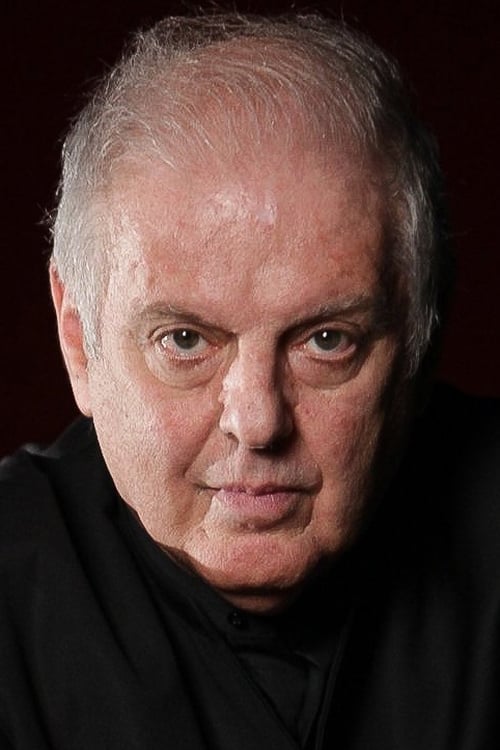
Daniel Barenboim
다니엘 바렌보임
atau dikenal sebagai
Riwayat Hidup
Daniel Barenboim is an Argentine-Israeli pianist and conductor who is a citizen of Argentina, Israel, Palestine, and Spain.
He is the general music director of the Berlin State Opera, and the Staatskapelle Berlin; he previously served as Music Director of the Chicago Symphony Orchestra, the Orchestre de Paris and La Scala in Milan.
Barenboim is known for his work with the West–Eastern Divan Orchestra, a Seville-based orchestra of young Arab and Israeli musicians, and as a resolute critic of the Israeli occupation of Palestinian territories.
He has won seven Grammy awards for his work and discography.
Barenboim is a polyglot, fluent in Spanish, Hebrew, English, French, Italian, and German.
The music conductor is a citizenship of Argentina, Israel, Palestine, and Spain.
Barenboim currently lives in Berlin.
Info Pribadi
Peran Yang Di Mainkan Daniel Barenboim
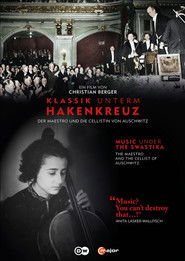 The stories of Jewish cellist Anita...
The stories of Jewish cellist Anita...Music Under the Swastika - The Maestro and the Cellist of Auschwitz 2022
The stories of Jewish cellist Anita Lasker-Wallfisch, who survived Auschwitz, and of star conductor Wilhelm Furtwängler, who worked with the Nazis, provide insight. The film centers around two people who represent musical culture during the Third Reich - albeit in very different ways. Wilhelm Furtwängler was a star conductor; Anita Lasker-Wallfisch, the cellist of the infamous Women’s Orchestra of Auschwitz. Both shared a love for the classical German music.
 After winning in battle Commander Macbeth...
After winning in battle Commander Macbeth...Verdi: Macbeth 2019
After winning in battle, Commander Macbeth receives a prophesy that he will one day become King of Scotland. Influenced by the whisperings of his wife, he literally stops at nothing to fulfil the prophesy. But racked by guilt, the Macbeths soon sink into delusions and become victims of their own thirst for power. Anna Netrebko reprises her electrifying portrayal of Lady Macbeth opposite Plácido Domingo at the Berlin State Opera. Maestro Daniel Barenboim leads the opera icons along with the Staatsopernchor and Staatskapelle Berlin.
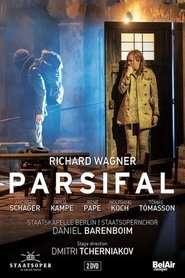 Wagners mystic masterpiece Parsifal at the...
Wagners mystic masterpiece Parsifal at the...Parsifal 2016
Wagner’s mystic masterpiece Parsifal at the Staatsoper Berlin, staged by Dmitri Tcherniakov and conducted by Daniel Barenboim. Wagner’s last opera, Parsifal is a medieval epic story marked by Christian, Buddhist and esoteric references. It is about redemption and renewal, but this new production by Russian director Dmitri Tcherniakov adds a jarring note : revenge. This “Festival Play for the Consecration of the Stage” is similar to a Medieval epic, a blend of metaphysical dreams and esoteric battles with constant spiritual references. This new production is directed by Dmitri Tcherniakov, conducted by Daniel Barenboim and sung by an international cast of excellent singers: Andreas Schager, Anja Kampe, Wolfgang Koch, René Pape, Tomas Tómasson and Matthias Hölle.
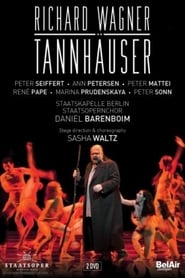 A brand new production of Tannhuser...
A brand new production of Tannhuser...Tannhäuser 2014
A brand new production of ‘’Tannhäuser’’ at the Staatsoper Berlin conducted by Daniel Barenboim, staged and choreographed by Sasha Waltz, who has already staged Purcell and Berlioz, Dusapin, Rihm and Hosokawa. Now Sasha Waltz brings to the stage a grand romantic Wagner’s opera with a star cast of some of today best Wagnerian singers: Peter Seiffert in the title role, Réne Pape as Landgraf and Peter Mattei as Wolfram, Ann Petersen sings Elisabeth and Marina Prudenskaya is Venus.
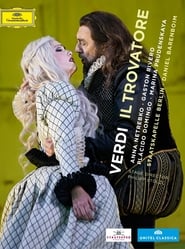 Daniel Barenboim conducts the Staatskapelle Berlin...
Daniel Barenboim conducts the Staatskapelle Berlin...Il Trovatore 2013
Daniel Barenboim conducts the Staatskapelle Berlin in this production of Verdi's opera starring Anna Netrebko and Plácido Domingo. The Count Di Luna believes that his younger brother was murdered years before by a vengeful gypsy but still hopes that he may be alive. When he attempts to court the beautiful Leonora, he is enraged to discover that she has a lover – the troubadour, Manrico. Manrico and the Count duel, and afterwards Manrico reveals to Azucena, the woman he believes to be his mother, that when he had the opportunity to kill the Count he felt something holding him back.
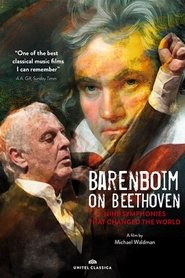 This film gains a unique insight...
This film gains a unique insight...Barenboim on Beethoven: Nine Symphonies that Changed the World 2012
This film gains a unique insight into the nine symphonies, as well as the musicians' views on the difficulties and delights of performing these inimitable works. Captured within the documentary, Daniel Barenboim and his West-Eastern Divan Orchestra take the complete cycle of Beethoven symphonies on tour to China and South Korea, to explore why these works are so often regarded as one of the greatest achievements of Western culture.
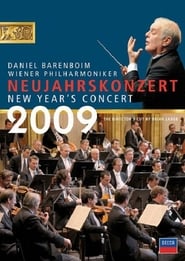 The ever popular New Years Concert...
The ever popular New Years Concert...New Year's Concert 2009 2009
The ever popular New Year's Concert from Vienna returns in another sparkling performance, broadcast live to over 50 countries! Daniel Barenboim makes his New Year's Concert debut and brings with him a number of works that have never been performed at the concert before. The live concert features popular waltzes, gallops and polkas from the Strauss family including The Blue Danube, The Gypsy Baron March, Thunder and Lightening Polka and much more.
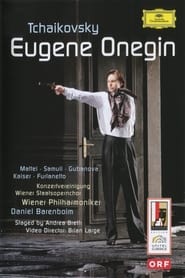 The Wiener Philharmoniker mounts and Andrea...
The Wiener Philharmoniker mounts and Andrea...Eugene Onegin 2007
The Wiener Philharmoniker mounts, and Andrea Breth stages, this 2007 production of Pyotr Illych Tchaikovsky's opera Eugene Onegin, starring Peter Mattei, Joseph Kaiser, Anna Samuil and Renée Morloc. The Konzertvereinigung Wiener Staatsopernchor lends added musical accompaniment, under the baton of Daniel Barenboim.
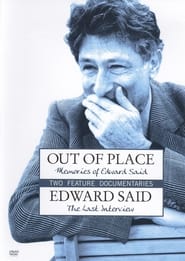 Documentary filmmaker Makoto Sato offers this...
Documentary filmmaker Makoto Sato offers this...Out of Place: Memories of Edward Said 2006
Documentary filmmaker Makoto Sato offers this reflection on the life and career of Edward Said, the deeply influential literary and cultural critic, Columbia University academic, and outspoken advocate for displaced Palestinians, of whom he was one. Exploring the landscapes of Said's childhood and how they influenced his philosophy, this film features rare footage of Said and interviews with many of his colleagues, including Noam Chomsky.
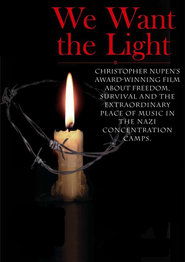 The struggles of the worlds Jewish...
The struggles of the worlds Jewish...We Want the Light 2004
The struggles of the world’s Jewish people over the course of several centuries are expressed and explored through the music they inspired in this documentary from the BBC and Opus Arte. We Want the Light brings together harrowing tales from Holocaust survivors with performances of music by such legendary composers as Mahler, Bach, Mendelssohn, and Brahms. Interviews with: Alice Sommer Herz, Jacques Stroumsa, Evgeny Kissin, Vladimir Ashkenazy, Zubin Mehta, Itzhak Perlman, Pinchas Zukerman, Toby Perlman, Michael Haas, Elyakim Ha’etzni, Norman Lebrecht, Margaret Brearley, Paul Lawrence Rose, Daniel Barenboim, Yirmiyahu Yovel, Uri Toeplitz & Anita Lasker-Wallfisch. Featuring: Gürzenich-Orchester Köln, Cologne Cathedral Children’s Choir & Cologne Opera Chorus.
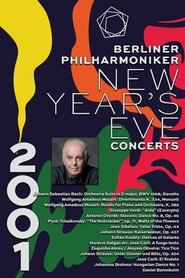 The annual New Years Eve Concert...
The annual New Years Eve Concert...The Berliner Philharmoniker’s New Year’s Eve Concert: 2001 2001
The annual New Year’s Eve Concert is one of the highlights in the calendar of every classical music fan in Berlin and beyond. On New Year‘s Eve, the Berliner Philharmoniker invite an exceptional soloist for a festive gala. Together, the musicians bid farewell to the old year and welcome the new. The 2001 concert was conducted by Daniel Barenboim. On the programme: Bach: Orchestra Suite in D major, Mozart: Divertimento K. 334, Menuett; Rondo for Piano and Orchestra, K. 382, Verdi: “Aida” (Excerpts), Dvorák: Slavonic Dance, Tchaikovsky: “The Nutcracker”, Waltz of the Flowers, Sibelius: Valse Triste, Strauss: Kaiserwalzer, Op. 437, Kodály: Dances of Galanta, Strauss: Unter Donner und Blitz, Op. 324, José Carli: El firulete, Brahms: Hungarian Dance No. 1.
 One of the chief pleasures of...
One of the chief pleasures of...Otello 2001
One of the chief pleasures of this live production of Otello from the Berlin Staatsoper Unter den Linden is Daniel Barenboim's conducting. From the opening gale-force blast of storm music, through the crunching and stabbing accompaniment of Iago's "Credo" to the shimmering strings of Desdemona's "Willow Song", he doesn't miss a trick. Everything works at the highest pitch of intensity and the orchestra sticks to his beat like glue. It's a necessary compensation for the shortcomings of the staging: the stolid chorus remains unperturbed by the storm and is directed to perform with unison movements; the acting (apart from Valeri Alexejev) is non-committal, and Alexandre Tarta's video direction somewhat flat-footed. She doesn't manage to make much small-screen sense of an impenetrably murky opening scene, for example, and doesn't seem fond of reaction shots.
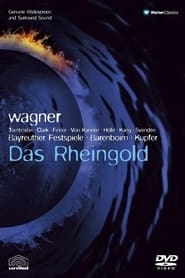 PRELIMINARY EVENINING OF THE RING CYCLE...
PRELIMINARY EVENINING OF THE RING CYCLE...The Ring Cycle: Das Rheingold 1991
PRELIMINARY EVENINING OF THE RING CYCLE. Upon the banks of the ageless river Rhine, the Rhinemaidens play. Alberich, a Nibelung dwarf, tries vainly to seduce one of them. To taunt him, they reveal their secret: out of the gold they guard one can forge a Ring to rule the world, but at the cost of giving up Love forever. Alberich steals the gold, makes the ring and plans his world take-over. Meanwhile, Wotan, King of the Gods, must figure out how to finance the construction of Valhalla. He has promised his sister-in-law as payment to the giant construction workers led by Fafner, but his wife Fricka disapproves. Loge (God of Fire) tricks Alberich and brings him to Wotan, who takes the Ring. In revenge Alberich curses it: lack of the Ring will fuel desire for it and possession will only lead to misery. Wotan gives the Ring to Fafner as ransom for Fricka's sister. Filmed at the Bayreuth Festspielhaus in June & July 1991.

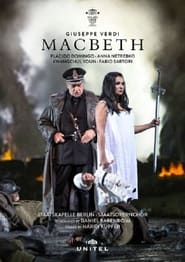 Giuseppe Verdis powerful opera Macbeth sees...
Giuseppe Verdis powerful opera Macbeth sees...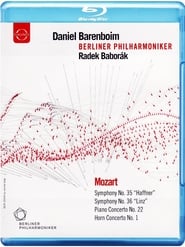
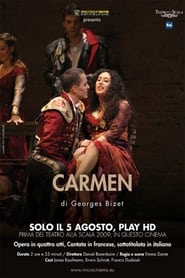 Live performance from Teatro alla Scala 7...
Live performance from Teatro alla Scala 7... Conducted by Daniel Barenboim the Staatskapelle...
Conducted by Daniel Barenboim the Staatskapelle...